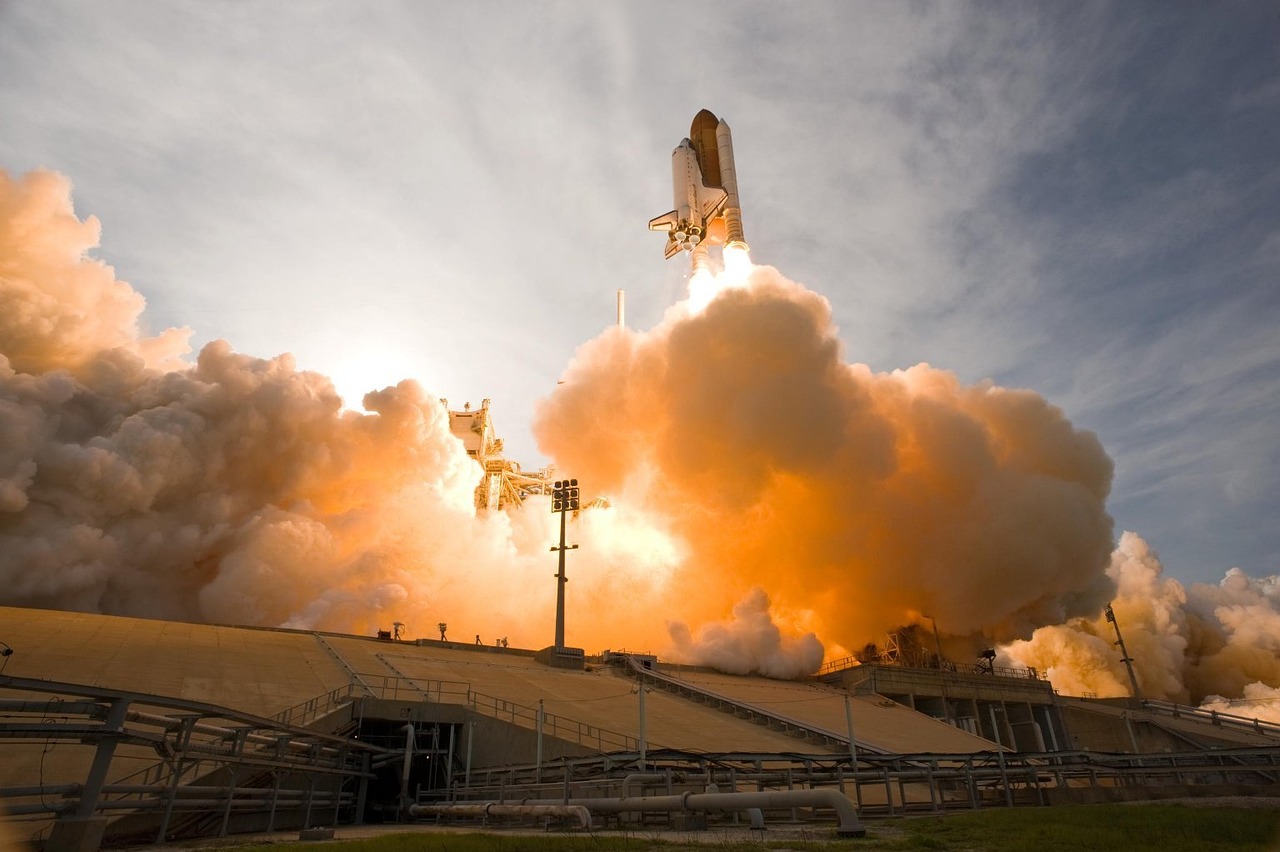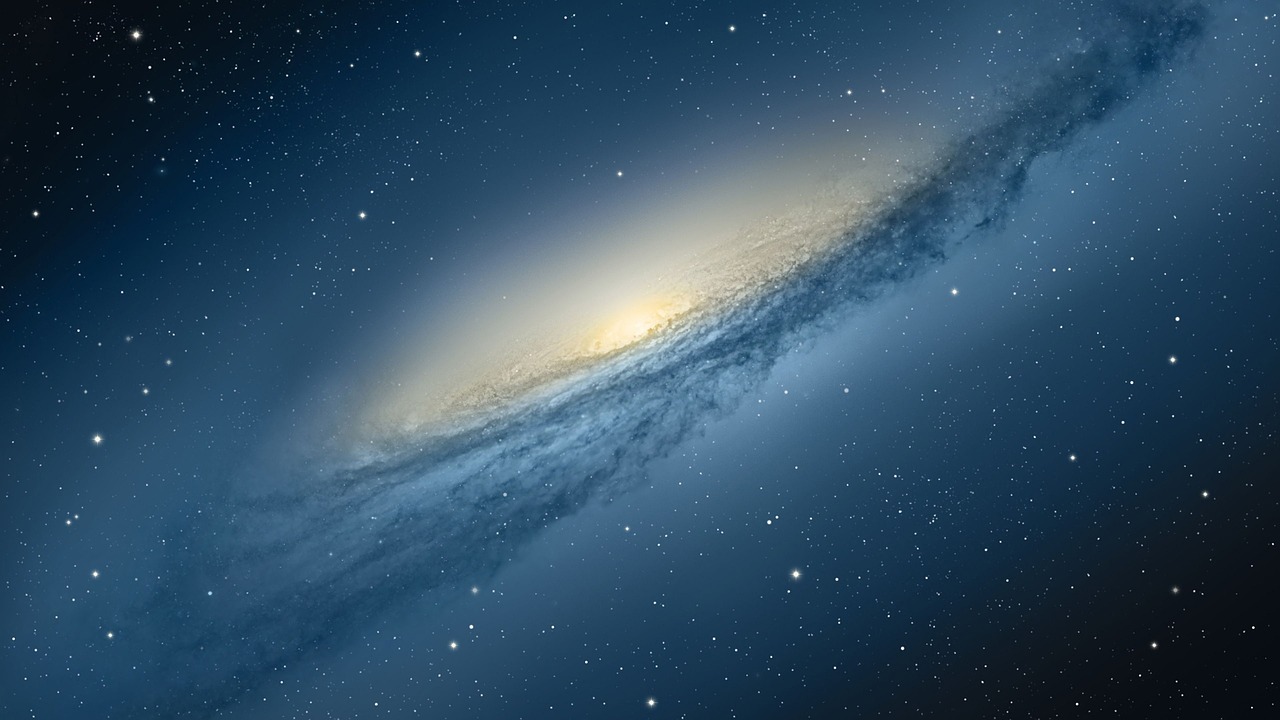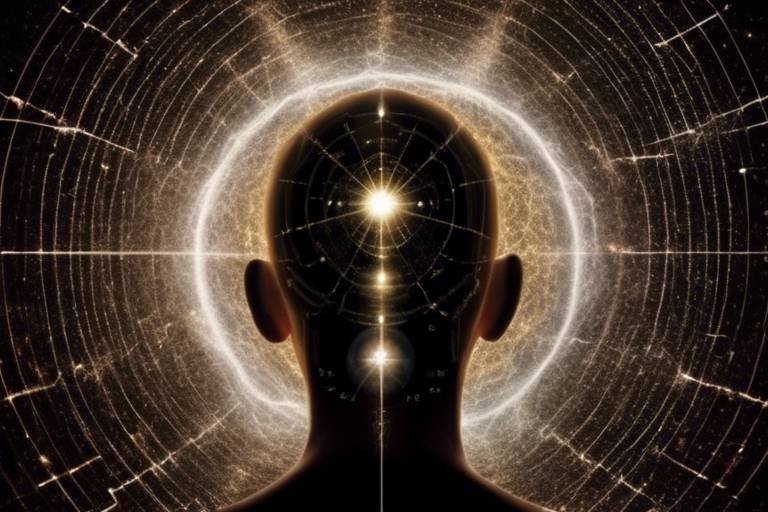Metaphysics - Uncovered Truths About Time and Space
Welcome to the captivating world of metaphysics, where we embark on a thrilling journey to explore the very fabric of our reality. The concepts of time and space have intrigued thinkers from various disciplines for centuries, and it's no wonder why! These dimensions shape our existence and influence everything we perceive. But have you ever stopped to ponder: what is time, really? Is it a linear progression of moments, or could it be something far more complex? And what about space? Is it merely a backdrop for our lives, or is it an active participant in the grand play of existence?
In this article, we'll peel back the layers of these profound questions, diving deep into the myriad theories and philosophies that attempt to explain the nature of time and space. From the ancient musings of philosophers to the groundbreaking discoveries of modern science, we will uncover the truths that lie hidden beneath the surface. Prepare yourself for a whirlwind of ideas that challenge conventional thinking and invite you to reconsider what you believe about the universe!
As we navigate through this intricate landscape, we will encounter various interpretations of time, including the linear view that sees time as a straight line stretching from the past to the future, and the cyclical perspective that suggests time is more like a wheel, endlessly repeating itself. We’ll also delve into the relativistic interpretations that reveal how time can bend and stretch depending on the observer's speed and gravitational influence. Each of these perspectives offers a unique lens through which we can examine our existence.
Similarly, space is not just an empty void; it is a rich tapestry woven with matter and energy. The philosophical inquiries surrounding space challenge us to rethink our relationship with the universe. Is space a mere container for objects, or does it have its own intrinsic qualities? We will explore these questions and more, engaging with the ideas of great thinkers like Isaac Newton and Albert Einstein, whose contrasting views on space have profoundly impacted our understanding of reality.
But that's not all! The interconnectedness of time and space will also be a focal point of our discussion. How do these dimensions interact? What does Einstein's theory of relativity tell us about the nature of reality? And what about the tantalizing concept of time travel? We’ll examine the philosophical implications of traversing time, including the mind-bending paradoxes that arise when we consider the possibility of visiting the past or future.
So, buckle up as we embark on this enlightening exploration of metaphysics. By the end of this journey, you will not only have a deeper understanding of time and space but also a renewed appreciation for the mysteries that surround us. Get ready to challenge your perceptions and expand your mind!
- What is metaphysics? Metaphysics is a branch of philosophy that explores the fundamental nature of reality, including concepts such as being, existence, time, and space.
- How does time differ from space? Time is often viewed as a dimension that measures change and events, while space is the three-dimensional expanse in which objects and events occur.
- Can time be considered an illusion? Some philosophical perspectives suggest that time may be an illusion, while others argue it is a fundamental aspect of our experience.
- What are the implications of Einstein's theory of relativity? Einstein's theory revolutionized our understanding of time and space, showing that they are interconnected and can be affected by speed and gravity.

The Nature of Time
Time is one of those concepts that can make your head spin if you think about it too much. It’s like trying to grasp water with your hands; the more you try, the more it slips away. Philosophers and scientists have been wrestling with the idea of time for centuries, and it’s fascinating to see how our understanding has evolved. Traditionally, we’ve viewed time as a linear progression—think of it as a straight line stretching from the past, through the present, and into the future. This perspective is comforting, isn’t it? It gives us a sense of order and predictability, much like a well-organized bookshelf.
However, what if I told you that not everyone agrees with this linear view? Some cultures and philosophies propose a cyclical understanding of time. Imagine the seasons—spring, summer, fall, winter—repeating endlessly. This cyclical perspective suggests that time is more like a wheel, where events recur in a rhythm rather than a straight path. In this view, the past, present, and future are interconnected, and our experiences are part of a larger, ongoing cycle.
Then there’s the relativistic interpretation introduced by Einstein, which completely turned our understanding on its head. According to his theory of relativity, time is not absolute; it can stretch and contract depending on speed and gravity. Picture this: if you were to travel close to the speed of light, time for you would slow down compared to someone who remained on Earth. This isn’t just science fiction; it’s a reality that has been confirmed through various experiments. In essence, time becomes a flexible fabric, woven intricately with the very fabric of space.
So, what does this all mean for us? The nature of time challenges our perception of reality. It poses questions that can leave us pondering for hours. Are we merely passengers on a predetermined path, or do we have the power to shape our own timelines? Can we truly understand the past if our perception of time is so fluid? These questions are not just academic; they touch the core of our existence and influence how we live our lives.
In summary, the nature of time is a complex tapestry woven from various interpretations—linear, cyclical, and relativistic. Each perspective offers unique insights into our understanding of reality and our place within it. As we continue to explore these ideas, we may find that time is not just a measurement but a profound aspect of our existence that shapes our experiences and consciousness.
- What is the linear view of time? The linear view sees time as a straight line from the past to the future.
- How does the cyclical view differ? The cyclical view suggests time repeats in cycles, like seasons.
- What is Einstein's theory of relativity? It states that time is not absolute and can change based on speed and gravity.

Space: A Philosophical Inquiry
When we think about space, it often conjures images of vast emptiness or the beautiful tapestry of stars scattered across the night sky. However, space is far more than just a backdrop for celestial events; it is a fundamental aspect of our existence that has been the subject of deep philosophical inquiry for centuries. Philosophers like Immanuel Kant argued that space is not merely a physical entity but a necessary condition for human experience. He suggested that our understanding of the world is shaped by the spaces we inhabit, influencing our perception of reality itself.
Throughout history, various philosophical perspectives have emerged, each offering unique insights into the nature of space. For instance, the ancient Greeks viewed space as a container in which objects exist, while modern thinkers often explore the relationship between space and matter. This leads us to ponder: Is space an entity in its own right, or is it merely a byproduct of the objects it contains? This question opens up a rich dialogue about the very essence of existence.
In contemporary philosophy, the debate continues. Some argue that space is relational, meaning that it only exists because of the objects within it and their interactions. Others, however, advocate for an absolute view, claiming that space exists independently of the objects it contains. This dichotomy raises further questions about the nature of reality and our place within it. Are we mere observers of a pre-existing space, or do we actively shape it through our perceptions and actions?
To illustrate these philosophical perspectives, consider the following table that summarizes key views on space:
| Philosopher | View on Space |
|---|---|
| Aristotle | Space is a container for objects. |
| Isaac Newton | Space is absolute and exists independently. |
| Gottfried Wilhelm Leibniz | Space is relational and defined by the relationships between objects. |
| Immanuel Kant | Space is a necessary condition for human perception. |
Moreover, the relationship between space and time cannot be overlooked. Space is often perceived in conjunction with time, leading to the concept of spacetime in modern physics. This interconnectedness prompts us to ask: How does our understanding of space influence our perception of time? For instance, when we experience a moment of joy, time seems to stretch, while during moments of boredom, it appears to drag. This subjective experience of time is intricately linked to the spaces we occupy and the events that unfold within them.
Additionally, different cultures interpret space in varied ways. In many indigenous cultures, space is viewed as a living entity, imbued with spirit and meaning. This contrasts sharply with the Western scientific perspective, which often treats space as a mere void to be measured and quantified. Such differences highlight how cultural context shapes our understanding of reality and our relationship with the world around us.
As we delve deeper into the philosophical inquiry of space, we uncover layers of meaning that challenge our conventional understanding. Space is not just a physical expanse; it is a dynamic interplay of perception, existence, and culture. It invites us to consider our place in the universe and how we relate to the world and each other. So, the next time you gaze up at the stars, remember that you are not just looking at distant objects; you are engaging with a profound philosophical question that has captivated thinkers for centuries.
- What is the philosophical significance of space? Space is considered a fundamental aspect of existence, influencing our perception and understanding of reality.
- How do different cultures view space? Cultural interpretations of space can vary significantly, with some seeing it as a living entity while others view it as a mere backdrop for events.
- What is the relationship between space and time? Space and time are deeply interconnected, often perceived together as spacetime, affecting our subjective experiences.

Newtonian vs. Einsteinian Perspectives
The debate between Newtonian and Einsteinian perspectives on space has been one of the most transformative discussions in the realm of physics. At the heart of this debate lies the fundamental question: What is space? For Sir Isaac Newton, space was a fixed, absolute entity—an unchanging stage where events occur. He viewed time and space as separate, with time ticking away uniformly, regardless of the presence of matter. This perspective allowed for a straightforward understanding of motion and force, encapsulated in his famous laws of motion.
However, Albert Einstein shattered this classical view with his groundbreaking theories of relativity. Instead of seeing space as a static backdrop, Einstein proposed that space and time are intertwined in a four-dimensional continuum known as spacetime. In his theory, the presence of mass and energy can warp this fabric of spacetime, leading to the fascinating idea that time can dilate—meaning it can pass at different rates depending on the gravitational field and the relative speed of an observer. This revolutionary approach not only changed our understanding of gravity but also introduced a more dynamic view of the universe.
To illustrate the differences between these two perspectives, consider the following table:
| Aspect | Newtonian Perspective | Einsteinian Perspective |
|---|---|---|
| Nature of Space | Absolute and fixed | Relative and dynamic |
| Nature of Time | Uniform and constant | Variable and affected by gravity |
| Gravity | Force acting at a distance | Curvature of spacetime caused by mass |
| Motion | Linear and predictable | Non-linear and influenced by spacetime geometry |
This table highlights the stark contrasts between the two theories. While Newton's framework works well for everyday phenomena—like a falling apple or a projectile—Einstein's theory becomes essential when dealing with extreme conditions, such as those found near black holes or when traveling at speeds close to that of light.
Moreover, Einstein's theories have been confirmed through numerous experiments and observations, such as the bending of light around massive objects—a phenomenon predicted by his General Theory of Relativity. This has profound implications not just for physics but for our understanding of the universe itself. It suggests that the universe is not merely a collection of objects in space but a complex interplay of forces and fields that shape our reality.
In conclusion, the transition from Newtonian to Einsteinian perspectives represents a pivotal shift in how we comprehend the cosmos. While Newton laid the groundwork for classical mechanics, it was Einstein who expanded our horizons, urging us to see time and space as intricately linked, forever altering our perception of reality.

The Role of Gravity
Gravity is more than just a force keeping us grounded; it is a fundamental aspect of our universe that shapes the very fabric of space and time. Imagine the universe as a vast, intricate web. Each thread represents a massive object, like planets and stars, and the way they weave together is dictated by the gravitational forces they exert on one another. Without gravity, our understanding of existence would be drastically different, leaving us adrift in a chaotic cosmos.
To grasp the significance of gravity, we need to consider its role in various contexts:
- Cosmic Structure: Gravity is the architect of the universe. It pulls matter together, forming galaxies, stars, and planets. In essence, gravity is the glue that holds everything together.
- Orbital Mechanics: The dance of celestial bodies is orchestrated by gravity. For instance, the Earth orbits the Sun due to the gravitational pull, while the Moon orbits Earth in a delicate balance of forces.
- Time Dilation: According to Einstein's theory of relativity, gravity can warp time itself. The stronger the gravitational field, the slower time moves. This means that time passes differently for someone on the surface of a massive planet compared to someone far away in space.
Gravity is not just a static force; it is dynamic and ever-present. It influences everything from the formation of black holes to the behavior of light. When light passes near a massive object, its path bends due to gravity, a phenomenon known as gravitational lensing. This effect allows astronomers to observe distant galaxies that would otherwise be hidden behind massive cosmic structures.
Moreover, gravity’s influence extends to our daily lives. We experience its effects through the weight of objects and the sensation of falling. But the implications of gravity reach far beyond the tangible. It challenges our perceptions of reality and invites us to ponder profound questions about existence. For instance, what happens to gravity in a black hole? How does it behave in the vast emptiness of space? These questions fuel scientific inquiry and philosophical debate alike.
In conclusion, gravity is not merely a force; it is a fundamental component of the universe's architecture. It connects us to the cosmos, shaping our understanding of reality and influencing the very nature of time and space. As we continue to explore the mysteries of gravity, we uncover deeper truths about our existence and the universe we inhabit.
- What is gravity? Gravity is a natural phenomenon by which all things with mass are brought toward one another, including planets, stars, galaxies, and even light.
- How does gravity affect time? According to Einstein's theory of relativity, the stronger the gravitational pull, the slower time moves. This is known as time dilation.
- Can gravity be measured? Yes, gravity can be measured using various instruments such as gravimeters, which detect the acceleration due to gravity.
- What are black holes? Black holes are regions in space where the gravitational pull is so strong that nothing, not even light, can escape from them.

Quantum Mechanics and Space
When we dive into the realm of quantum mechanics, we enter a world that defies our everyday understanding of reality. Imagine a universe where particles can exist in multiple states simultaneously, or where the act of observation alters the very nature of what is being observed. This is the bizarre world of quantum mechanics, and it has profound implications for our understanding of space itself.
At the heart of quantum mechanics lies the concept of superposition, where particles can be in more than one state at a time until they are measured. This challenges our classical notion of space as a fixed arena where objects exist independently. Instead, quantum theory suggests that space is more like a dynamic stage where the properties of particles are interdependent. You might say it's akin to a dance floor where each dancer influences the others' movements, creating a complex tapestry of interactions.
Furthermore, the phenomenon of entanglement introduces a level of interconnectedness that seems to stretch across space in ways that are difficult to comprehend. When two particles become entangled, the state of one instantly influences the state of the other, regardless of the distance separating them. This suggests that our traditional view of space as a mere container for objects is far too simplistic. Instead, space may be a medium through which these entangled connections operate, challenging our understanding of distance and locality.
To illustrate these concepts, consider the following table that summarizes key differences between classical and quantum views of space:
| Aspect | Classical View | Quantum View |
|---|---|---|
| Nature of Space | Fixed and absolute | Dynamic and relational |
| Particle Behavior | Well-defined position and momentum | Probabilistic and uncertain |
| Interconnectedness | Independent entities | Entangled and interdependent |
As we explore these quantum principles, we must also consider their implications for our understanding of reality. If space is not merely a passive backdrop but an active participant in the behavior of particles, what does that mean for our perception of existence? Are we merely observers in a universe that is constantly in flux, shaped by the interactions of its fundamental components?
Ultimately, the intersection of quantum mechanics and space invites us to rethink our assumptions about the universe. It's a reminder that reality is often stranger than fiction, and the more we learn, the more questions arise. As we continue to probe the depths of quantum theory, we may discover that the nature of space is far more complex and fascinating than we ever imagined.
- What is quantum mechanics? Quantum mechanics is a fundamental theory in physics that describes the physical properties of nature at the scale of atoms and subatomic particles.
- How does quantum mechanics relate to space? Quantum mechanics suggests that space is not a static backdrop but a dynamic entity influenced by the behavior of particles and their interactions.
- What is superposition? Superposition is a principle of quantum mechanics where a particle can exist in multiple states at once until it is measured.
- What is entanglement? Entanglement is a phenomenon where two particles become linked, such that the state of one instantly affects the state of the other, regardless of the distance between them.

Philosophical Implications of Space
When we dive into the philosophical implications of space, we find ourselves navigating a vast ocean of thought that stretches far beyond the mere physical dimensions we inhabit. Space is not just an empty canvas where events unfold; it is a dynamic entity that shapes our understanding of existence itself. Philosophers from different cultures and eras have pondered the nature of space, leading to a variety of interpretations that challenge our everyday perceptions.
For instance, consider the ancient Greek philosopher Aristotle, who viewed space as a container—an empty void that holds objects. In contrast, Immanuel Kant proposed that space is not an external reality but rather a framework through which we perceive the world. This notion implies that our understanding of space is inherently subjective, shaped by our sensory experiences and cognitive structures. Isn't it fascinating to think that what we perceive as "real" might just be a construct of our minds?
Moreover, the implications of space extend into our understanding of consciousness. Different cultures interpret space in unique ways, influencing how individuals experience their existence. For example:
- Western Philosophy: Often views space as a measurable entity, governed by mathematical laws.
- Eastern Philosophy: Tends to see space as interconnected with time and existence, emphasizing a more holistic approach.
This divergence in perspectives leads to profound questions about our place in the universe. If space is merely a perception, what does that say about our reality? Are we simply products of our spatial interpretations? These questions not only challenge our understanding of physics but also our very consciousness. The implications of space are not just theoretical; they resonate deeply within our daily lives and interactions.
Furthermore, the relationship between space and matter raises additional philosophical inquiries. Is space dependent on the objects within it, or does it exist independently? This debate echoes throughout the history of philosophy and continues to inspire contemporary discussions. For instance, the concept of relational space posits that space is defined by the relationships between objects, while absolute space suggests that space exists independently of the objects it contains. Each perspective offers a unique lens through which to view reality.
In conclusion, the philosophical implications of space are as intricate as the cosmos itself. They challenge us to reconsider not only what space is but also how it shapes our understanding of existence, consciousness, and reality. As we explore these profound ideas, we must remain open to the possibility that our perceptions of space may be just as fluid and dynamic as the universe we inhabit.
- What is the significance of space in philosophy?
Space plays a crucial role in shaping our understanding of existence, influencing how we perceive reality and our place within it. - How do different cultures view space?
Different cultures interpret space in various ways, affecting human experience and consciousness, from Western views of measurable space to Eastern holistic perspectives. - What are the implications of space for consciousness?
The nature of space raises questions about the subjective experience of reality and how our perceptions shape our understanding of existence.

The Interconnectedness of Time and Space
The concept of time and space being interconnected is like a grand tapestry woven with threads of reality, each strand representing a different aspect of existence. When we think about how we experience life, it’s impossible to separate time from space; they are intertwined in a dance that defines our very being. Imagine trying to describe a beautiful sunset without mentioning the horizon where it unfolds—this is how inseparable time and space are in our understanding of the universe.
Throughout history, philosophers and scientists have sought to grasp this intricate relationship. One of the most profound insights came from Albert Einstein, whose theory of relativity revealed that time and space are not just separate entities but rather two facets of a single continuum known as spacetime. This revolutionary idea has profound implications not only for physics but also for our everyday lives. It suggests that the flow of time can be affected by the gravitational field of objects, meaning that time can actually pass differently depending on where you are in the universe.
To delve deeper into this interconnectedness, let’s consider a few key points:
- Spacetime Fabric: Think of spacetime as a fabric that stretches and bends in response to mass and energy. This bending creates what we perceive as gravity, which in turn affects how we experience time.
- Time Dilation: According to relativity, the faster you move through space, the slower you move through time. This phenomenon, known as time dilation, has been confirmed through experiments with atomic clocks on fast-moving jets.
- Black Holes: Near a black hole, the gravitational pull is so strong that it warps spacetime dramatically. Time slows down significantly as one approaches the event horizon, leading to fascinating questions about what happens to time in such extreme conditions.
This interconnectedness also leads us to ponder the philosophical implications of our existence. If time and space are so deeply linked, what does that mean for our understanding of reality? Can we truly say that we live in a linear timeline, or does our perception of time change based on our location in space? These questions can lead to mind-bending discussions about the nature of consciousness and the universe.
Moreover, the relationship between time and space is not just a scientific curiosity; it has profound implications for our everyday lives. Consider how we plan our days—our schedules are built around the understanding of time, yet they are inextricably linked to the spaces we inhabit. The rhythm of our lives is a constant negotiation between these two dimensions, shaping our experiences and interactions.
As we continue to explore the cosmos, the interconnectedness of time and space invites us to rethink our place in the universe. It challenges us to consider whether we are mere observers of a vast, unfolding drama or if we are active participants in a cosmic dance that transcends our conventional understanding of reality.
- What is spacetime? Spacetime is a four-dimensional continuum that combines the three dimensions of space with the dimension of time. It is a fundamental concept in the theory of relativity.
- How does gravity affect time? Gravity affects the passage of time through the phenomenon of time dilation, where time moves slower in stronger gravitational fields.
- Can we travel through time? While time travel remains a theoretical concept, it raises numerous philosophical and scientific questions, particularly regarding the implications of changing past events.

Relativity and Its Consequences
The theory of relativity, proposed by Albert Einstein in the early 20th century, has fundamentally transformed our understanding of time and space. Before relativity, we viewed time as a constant, an unchanging backdrop against which events unfolded. However, Einstein shattered this notion, revealing that time is not an absolute entity but is instead intertwined with space, forming what we now call space-time. This revolutionary idea prompts us to reconsider our perceptions of reality, as it suggests that time can stretch and compress depending on the observer's velocity and gravitational influence.
One of the most striking consequences of relativity is the concept of time dilation. Imagine two identical clocks: one remains on Earth while the other travels in a spaceship at a significant fraction of the speed of light. When the traveling clock returns, it will show less elapsed time than the clock on Earth. This phenomenon isn't just theoretical; it has been confirmed through numerous experiments, including those involving atomic clocks on fast-moving jets. It challenges our intuitive understanding of time as a uniform experience for everyone, everywhere.
Moreover, relativity introduces the idea that the fabric of space itself can be warped by massive objects. This leads us to the concept of gravitational time dilation, where time passes more slowly in stronger gravitational fields. For instance, if you were to spend time near a black hole, you would age more slowly compared to someone far away from its gravitational pull. Such implications raise profound questions about the nature of existence and our place in the universe.
To better understand these complex ideas, let’s break down some key concepts of relativity and their consequences:
| Concept | Description |
|---|---|
| Time Dilation | The phenomenon where time passes at different rates for observers in different frames of reference. |
| Gravitational Time Dilation | Time passes slower in stronger gravitational fields compared to weaker ones. |
| Space-Time Curvature | Massive objects like stars and planets warp the fabric of space-time, affecting the motion of other objects. |
These concepts not only reshape our scientific understanding but also provoke philosophical inquiries. If time is not a constant, what does that mean for our memories, our experiences, and even our future? Furthermore, the implications of relativity extend beyond physics, influencing fields such as philosophy, psychology, and even art. Artists and writers have drawn inspiration from the fluidity of time and space, exploring themes of perception and reality in their works.
In summary, Einstein's theory of relativity has opened a Pandora's box of questions and challenges to our conventional wisdom. It compels us to rethink not only the mechanics of the universe but also our understanding of existence itself. As we delve deeper into these concepts, we find ourselves at the intersection of science and philosophy, where the lines between reality and perception blur, inviting us to explore the very essence of being.
- What is the theory of relativity? The theory of relativity includes two theories: special relativity, which deals with observers moving at constant speeds, and general relativity, which addresses gravity's effect on space-time.
- How does time dilation work? Time dilation occurs when an object is moving at a significant fraction of the speed of light or is in a strong gravitational field, causing time to pass slower for that object compared to a stationary observer.
- What are the implications of gravitational time dilation? It suggests that time is relative and can be experienced differently depending on gravitational forces, affecting everything from GPS satellites to our understanding of the universe.

Time Travel: A Metaphysical Exploration
Time travel has long captivated the imagination of both scientists and dreamers alike. It poses a tantalizing question: what if we could leap across the fabric of time, visiting the past or future? This notion isn't just the stuff of science fiction; it delves deep into metaphysical territory, challenging our understanding of reality itself. Imagine being able to witness historical events firsthand or catch a glimpse of what lies ahead. But what does this mean for our perception of time and existence?
At its core, time travel raises profound questions about causality and the nature of time. If we could travel back in time and alter a significant event, would it create a ripple effect, changing the present in unimaginable ways? This idea is often explored through the concept of time paradoxes, which suggests that any interference in the past could lead to contradictions. For instance, if you were to prevent your grandparents from meeting, would you even exist to travel back in time in the first place? This paradox, often referred to as the "grandfather paradox," illustrates the complex interplay between time, choice, and existence.
Moreover, the implications of time travel extend beyond mere theoretical discussions. It challenges our understanding of linear time—the idea that time flows in a straight line from past to present to future. Some theories suggest that time is more like a vast landscape, where different moments exist simultaneously, much like a multiverse of possibilities. In this view, every decision creates a branching timeline, leading to alternate realities. So, if you could time travel, would you be stepping into your own timeline, or would you be entering a parallel universe where everything is slightly different?
To further explore the metaphysical implications of time travel, let’s consider some key theories:
- Einstein's Theory of Relativity: According to Einstein, time is not absolute; it can stretch and contract based on speed and gravity. This suggests that traveling at near-light speeds could allow for time dilation, where time moves slower for the traveler compared to those left behind.
- Wormholes: Theoretical passages through space-time could create shortcuts between different points in time and space. If they exist, could they serve as gateways for time travel?
- Quantum Mechanics: Some interpretations of quantum theory propose that multiple outcomes exist simultaneously, hinting at the possibility of traveling between these outcomes or timelines.
These theories not only spark curiosity but also challenge our fundamental understanding of existence. If time travel were possible, it would imply that our past and future are not fixed but rather fluid, shaped by our actions and choices. This perspective aligns with various philosophical views that emphasize the interconnectedness of time, space, and consciousness.
As we ponder the reality of time travel, it's essential to consider the ethical implications. Would it be right to alter history? What responsibilities would time travelers have to ensure they do not disrupt the natural course of events? These questions invite us to reflect on our values and the impact of our actions, even when it comes to something as abstract as time.
In conclusion, time travel is not merely a thrilling concept for movies and novels; it serves as a profound metaphor for our quest to understand existence. It invites us to explore the mysteries of time and space, challenging our perceptions and expanding our horizons. Whether we ever achieve the ability to traverse time remains uncertain, but the philosophical implications of such a journey will continue to inspire wonder and inquiry.
- Is time travel theoretically possible? While time travel remains a theoretical concept, certain scientific theories, like relativity, suggest it may be possible under specific conditions.
- What are time paradoxes? Time paradoxes are logical contradictions that arise when actions in the past affect the present or future, often leading to questions about causality.
- How does quantum mechanics relate to time travel? Quantum mechanics introduces ideas of multiple outcomes and realities, which could imply that time travel might involve navigating these alternate timelines.
Frequently Asked Questions
- What is metaphysics?
Metaphysics is a branch of philosophy that explores the fundamental nature of reality, including concepts such as being, existence, time, and space. It delves into questions that go beyond the physical sciences and seeks to understand the underlying principles that govern the universe.
- How do different cultures perceive time?
Time perception varies significantly across cultures. Some cultures view time as linear, where events follow a sequence from past to future, while others see it as cyclical, emphasizing the repetition of seasons and life cycles. This cultural lens shapes how people understand their experiences and interactions with the world.
- What are the main theories of time?
There are several theories of time, including linear, cyclical, and relativistic interpretations. Linear time suggests a straight progression from past to future, while cyclical time emphasizes recurring patterns. Relativistic time, based on Einstein's theory of relativity, introduces the idea that time can vary depending on speed and gravity, challenging our conventional understanding.
- How does gravity affect our understanding of space?
Gravity is a fundamental force that shapes the structure of the universe. It influences the motion of celestial bodies and the curvature of space-time. Understanding gravity helps us comprehend how objects interact in space and how they are affected by the presence of mass, fundamentally altering our perception of distance and connectivity in the universe.
- What is the difference between Newtonian and Einsteinian perspectives on space?
Newtonian physics views space as a fixed, unchanging backdrop where events occur, while Einsteinian physics introduces the idea that space is dynamic and intertwined with time. Einstein's theory of relativity shows that space can be warped by mass and energy, fundamentally altering our understanding of how dimensions interact.
- Can time travel be scientifically possible?
Time travel remains a hot topic in both science and philosophy. While theories in physics, like relativity, suggest that time travel could be theoretically possible under certain conditions (like wormholes), practical applications and the implications of such travel, including paradoxes, are still widely debated and remain speculative.
- What are the philosophical implications of space?
The philosophical implications of space extend into how we understand existence and consciousness. Different philosophies interpret space not just as a physical entity but as a crucial aspect of human experience, shaping how we perceive reality and our place within it.
- How are time and space interconnected?
Time and space are deeply intertwined; they form a single continuum known as space-time. Einstein's theory of relativity illustrates this connection, showing that changes in one can affect the other. This relationship challenges our traditional notions of both dimensions and invites us to reconsider how we experience reality.



















